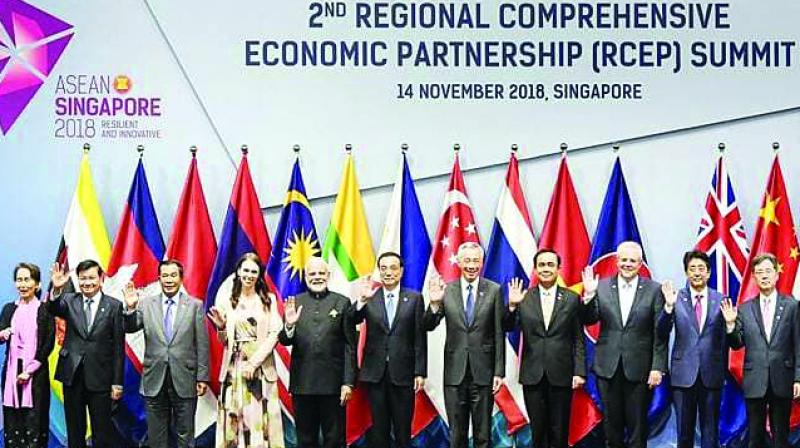Government drawing up red lines for RCEP pact
The government is seeking to protect its stake across sectors to minimise the hit to goods exports.

New Delhi: India is drawing up a list of ‘must haves’ to enable it to forge ahead with a pan-Asian free trade agreement, as pressure mounts on the country to conclude discussions to finalise the pact before the end of the year, a senior government official said.
Trade ministry officials in New Delhi met late into the night on Thursday to discuss India’s demands and the concessions it’s prepared to offer, the official said, asking not not to be identified.
New Delhi is under increasing pressure to complete negotiations and decide on whether it will be part of what could become the world’s largest trading bloc covering nearly half of the globe’s population. The issue has taken on new urgency with a weekend meeting in New Delhi involving representatives of the Regional Comprehensive Economic Partnership, known as RCEP, ahead of the final round of talks starting September 19 in Danang, Vietnam.
Commerce Ministry spokeswoman Monideepa Mukherjee wasn’t immediately available for comment.
The government is seeking to protect its stake across sectors to minimise the hit to goods exports, especially in agriculture and certain infrastructure industries. India has raised concerns about the lack of market access that led to trade imbalances with other nations covered by the agreement. Apart from differences with China, India has met resistance from countries like Singapore and South Korea over demands for easier movement of its citizens to help it push its services exports, the official said.
“It is unfair to put all the blame for slow progress on India, as some other RCEP members try to do, for dragging its feet on tariff cuts,” said a Eurasia Group analysis led by Peter Mum-ford. “Other countries have not acquiesced to India’s demands for significant liberalisation of services and movement of skilled labour,” the note said.
Yet, Prime Minister Modi’s stronger-than-expected election victory in May has not made the government less protectionist, citing the administration’s recent decision to review existing free trade agreements to assess their benefit, Mumford and his colleagues noted.
Delays to RCEP are not good news for a region facing increasing economic headwinds—despite its modest level of ambition, conclusion of the mega-trade pact would boost confidence in the short term and have a substantial impact in the longer term.
Tensions between India and China have contributed to the delay in finalising the talks, which have dragged on for seven years with India participating in more than 80 rounds of discussions with various countries.

